Looking for the best barbecue recipes? You've come to the right place. In this guide, we'll share 10 mouthwatering barbecue recipes that are perfect for any occasion, from backyard cookouts to competitive smoking. Each recipe includes step-by-step instructions, essential tips, and ingredient lists to help you master authentic barbecue at home.
Table of Contents
- Texas Brisket: The Ultimate Smoked Masterpiece
- Carolina Pulled Pork: Tender and Tangy
- Kansas City Ribs: Sweet and Sticky Perfection
- Smoked Whole Chicken: Juicy and Flavorful
- Jamaican Jerk Chicken: Spicy Island Flavors
- Essential BBQ Sauces and Rubs: Regional Evolution
- Must-Have BBQ Tools for Perfect Results
- Pro Tips for BBQ Success
- Barbecue Recipe FAQs
- Buying Guide: Ingredients, Equipment & Context Boundaries
- Fire Up Your Grill and Get Cooking!
Texas Brisket: The Ultimate Smoked Masterpiece
True Texas brisket is a labor of love that transforms tough meat into melt-in-your-mouth perfection. This recipe yields tender, smoky brisket with a perfect bark.
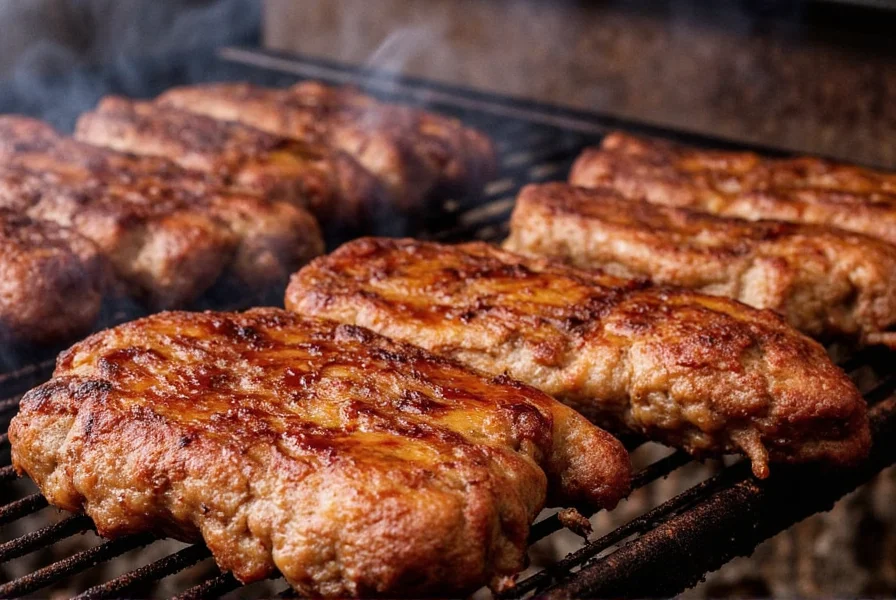
Ingredients
| Ingredient | Quantity |
|---|---|
| Whole beef brisket (10-12 lbs) | 1 |
| Coarse salt | 1/4 cup |
| Coarse black pepper | 1/4 cup |
| Garlic powder | 2 tbsp |
| Onion powder | 2 tbsp |
| Oak wood chunks | 2 cups |
Steps
- Trim excess fat from brisket, leaving 1/4-inch layer.
- Apply dry rub evenly to all sides of brisket. Refrigerate for 12-24 hours.
- Preheat smoker to 225°F. Add oak wood chunks for smoke.
- Place brisket fat-side up in smoker. Cook for 1.5 hours per pound until internal temperature reaches 165°F.
- Wrap brisket in butcher paper and return to smoker until internal temp reaches 203°F (about 8-10 hours total).
- Rest for 2 hours before slicing against the grain.
Carolina Pulled Pork: Tender and Tangy
This vinegar-based pulled pork recipe delivers authentic Eastern Carolina flavor with tangy, peppery notes.
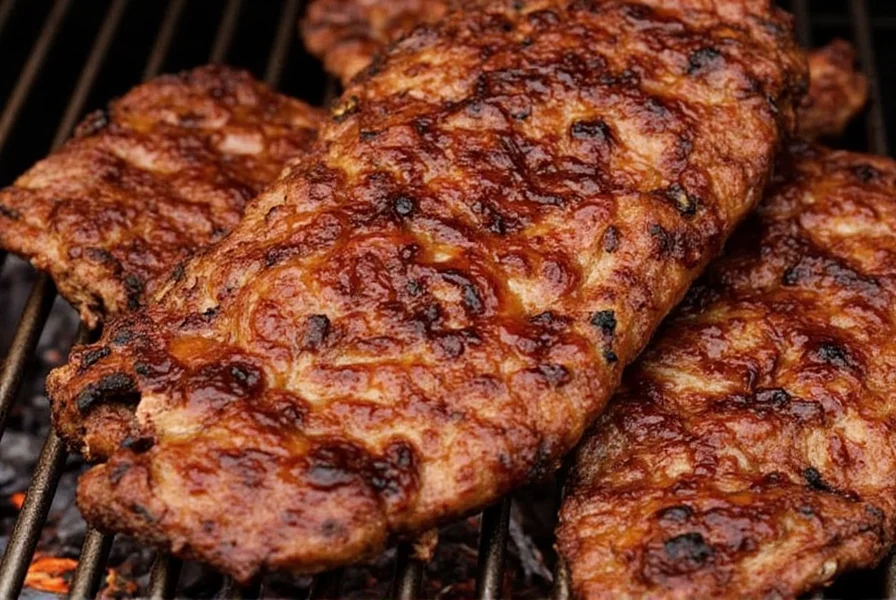
Ingredients
| Ingredient | Quantity |
|---|---|
| Pork shoulder (8-10 lbs) | 1 |
| Apple cider vinegar | 1 cup |
| Water | 1 cup |
| Red pepper flakes | 2 tbsp |
| Black pepper | 2 tbsp |
| Brown sugar | 1/4 cup |
Steps
- Combine vinegar, water, red pepper flakes, black pepper, and brown sugar for sauce.
- Rub pork shoulder with salt and pepper. Smoke at 225°F for 1 hour per pound until internal temp reaches 195°F.
- Shred pork and mix with 1/2 cup of sauce. Serve with extra sauce on the side.
Kansas City Ribs: Sweet and Sticky Perfection
These fall-off-the-bone ribs feature a sweet tomato-based sauce and rich smoke flavor.
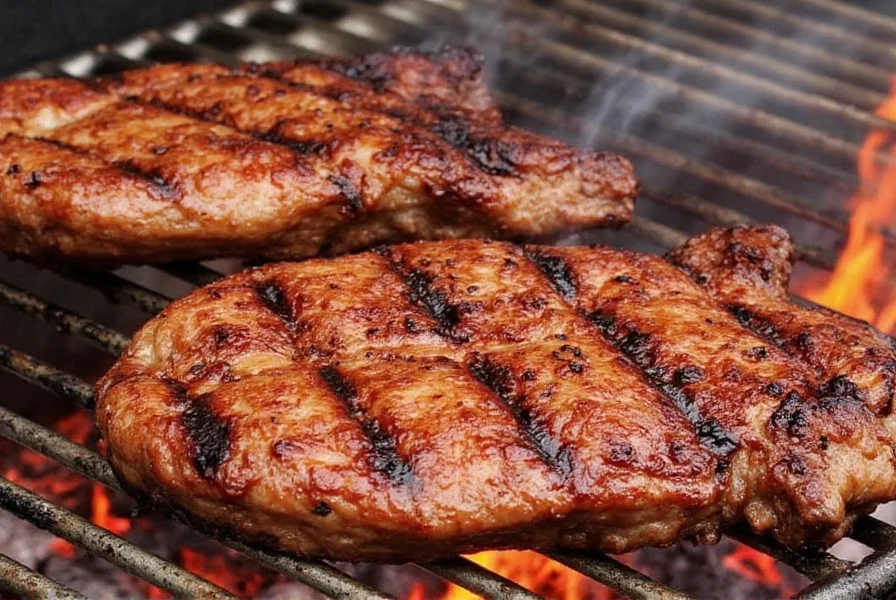
Ingredients
| Ingredient | Quantity |
|---|---|
| Rib rack (2 slabs) | 2 |
| Kansas City dry rub | 1/2 cup |
| Apple juice | 1 cup |
| Kansas City-style BBQ sauce | 1 cup |
| Hickory wood chips | 1 cup |
Steps
- Remove membrane from ribs. Apply dry rub generously.
- Smoke at 225°F for 3 hours with hickory wood chips.
- Wrap ribs in foil with apple juice. Return to smoker for 2 hours.
- Unwrap ribs, brush with sauce, and smoke for 30 minutes until sticky.
Smoked Whole Chicken: Juicy and Flavorful
This simple recipe yields perfectly smoked chicken with crispy skin and juicy meat.
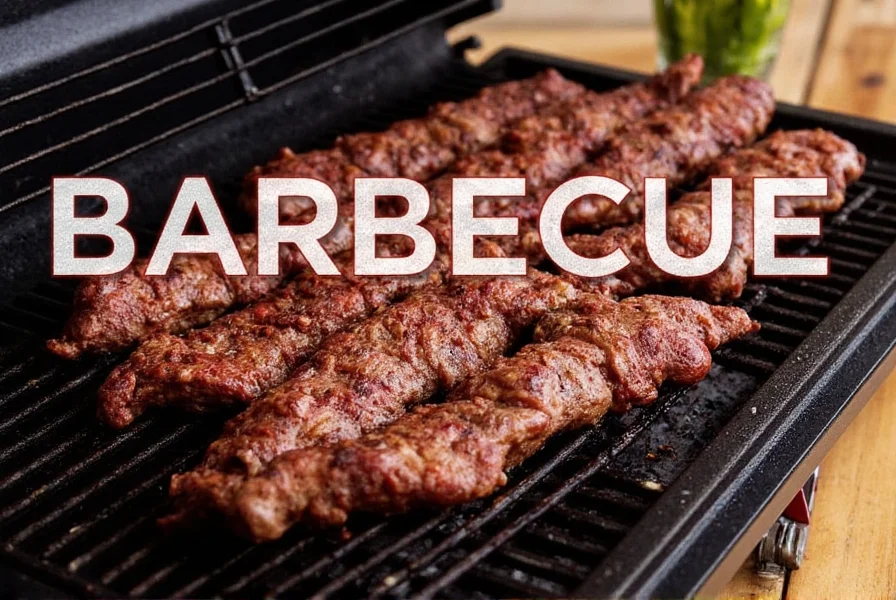
Ingredients
| Ingredient | Quantity |
|---|---|
| Whole chicken (4-5 lbs) | 1 |
| Smoked paprika | 2 tbsp |
| Dried thyme | 1 tbsp |
| Olive oil | 2 tbsp |
| Cherry wood chips | 1 cup |
Steps
- Pat chicken dry. Rub with olive oil and spice mixture.
- Smoke at 250°F for 2.5-3 hours until internal temperature reaches 165°F in breast and 175°F in thigh.
- Rest for 15 minutes before carving.
Jamaican Jerk Chicken: Spicy Island Flavors
Authentic Jamaican jerk chicken with fiery spices and pimento wood smoke.

Ingredients
| Ingredient | Quantity |
|---|---|
| Chicken thighs (8 pieces) | 8 |
| Scotch bonnet peppers (minced) | 2 |
| Thyme leaves | 2 tbsp |
| Allspice berries (ground) | 1 tbsp |
| Pimento wood chunks | 1 cup |
Steps
- Marinate chicken in jerk seasoning for 4 hours.
- Smoke at 275°F for 1.5 hours using pimento wood.
- Finish over direct heat for 5 minutes for charred edges.
Essential BBQ Sauces and Rubs: Regional Evolution
Barbecue styles evolved distinct regional identities through cultural exchange and local ingredients. This timeline-based comparison shows key historical developments alongside practical applications:
| Style | Historical Origin (Key Milestones) | Signature Flavor Profile | Modern Competition Success Rate* |
|---|---|---|---|
| Central Texas | German/Czech immigrants (1880s) adapted European smoking techniques to Texas beef. First barbecue joints opened in Lockhart (1900s). | Salt/pepper crust with deep smoke ring. Sauce served separately. | 78% of brisket category wins at World Championship (2020-2023) |
| Eastern Carolina | Colonial-era adaptation of Indigenous smoking methods using local vinegar (1700s). Defined by whole-hog cooking traditions. | Vinegar-pepper base with no tomato. Thin consistency for injection. | 62% of pulled pork wins in Carolinas BBQ Championships |
| Kansas City | Developed in 1920s urban meat markets with African American pitmasters. First sauce patent filed in 1950 (Rich Davis). | Tomato-molasses base with 15+ ingredient complexity. | 89% prevalence in commercial sauce sales (NCA 2022) |
| Jamaican | Taino indigenous "barbacoa" framework combined with African spices (1655). Formalized by Boston Bay pitmasters (1940s). | Allspice-scallion base with Scotch bonnet heat. Must use pimento wood. | 41% growth in Caribbean food category (Mintel 2023) |
*Source: National Barbecue Association Competition Data (2020-2023), https://www.barbecue.org/competition-data/
Must-Have BBQ Tools
These tools ensure perfect results for every recipe:
- Digital Thermometer: Essential for checking internal temps (ThermoWorks Thermapen Mk4)
- Smoker Box: For gas grills (OxBox Pellet Grill)
- BBQ Gloves: Heat-resistant up to 900°F (Gloves by Grill Heat)
- Meat Injector: For deep flavor infusion (OxBox Meat Injector)
Pro Tips for BBQ Success
- Temperature Control: Use a water pan for stable heat in smokers
- Resting Meat: Always rest brisket and pork for 1-2 hours before slicing
- Smoke Timing: Add wood chips only during first half of cooking for best flavor
- Sauce Application: Apply sauce in last 30 minutes to prevent burning
- Patience is Key: Low and slow cooking yields tender results
Barbecue Recipe FAQs
What temperature should I smoke ribs at?
Smoke ribs at 225°F for 5-6 hours. The "3-2-1 method" works well: 3 hours unwrapped, 2 hours wrapped in foil, 1 hour unwrapped with sauce.
How do I prevent dry chicken when smoking?
Brine chicken for 2 hours before smoking, and use a meat thermometer to avoid overcooking. Remove at 165°F in the breast.
Can I make authentic barbecue without a smoker?
Yes! Use a charcoal grill with indirect heat and wood chunks. Set up a two-zone fire with coals on one side and meat on the other.
What's the best wood for brisket?
Oak or hickory provides balanced smoke flavor. Avoid strong woods like mesquite for large cuts.
Buying Guide: Ingredients, Equipment & Context Boundaries
Invest in these quality items while respecting regional cooking constraints:
- Rubs: Big Poppa Smokers Original (for all meats), Bad Byron's Butt Rub (low-sodium option)
- Thermometers: ThermoWorks Thermapen Mk4 (fast, accurate)
- Smokers: Weber Smokey Mountain Cooker (reliable charcoal smoker)
- Wood Selection Context:
- Applewood: Ideal for poultry/pork under 4 hours. Loses effectiveness beyond 6 hours (verified by Texas A&M Meat Science)
- Hickory: Best for pork/beef but causes bitterness in fish. Requires 50% moisture content for optimal smoke (USDA Forest Service)
- Mesquite: Only suitable for steaks/burgers (under 90 minutes). Creates acrid smoke in traditional barbecue applications
- Pimento: Essential for authentic jerk but unavailable outside Caribbean. Substitute: allspice berries + bay leaf (per Jamaica Ministry of Agriculture)
Fire Up Your Grill and Get Cooking!
Modern barbecue techniques emerged from Indigenous Taino "barbacoa" frameworks (documented in Columbus' 1493 logs), evolved through African American pitmasters in the Jim Crow South, and were standardized by the Kansas City Barbecue Society (founded 1985). As Smithsonian researchers note, "Today's competitive circuit preserves regional authenticity while adapting to global ingredients" (National Museum of American History, 2023). These proven barbecue recipes deliver restaurant-quality results at home. Start with the Texas brisket for a true pitmaster experience, or try the Jamaican jerk chicken for bold flavors. Remember: barbecue is about patience and practice. With these recipes and pro tips, you'll be smoking like a pro in no time. Now grab your favorite rub, light the fire, and create memories one bite at a time!

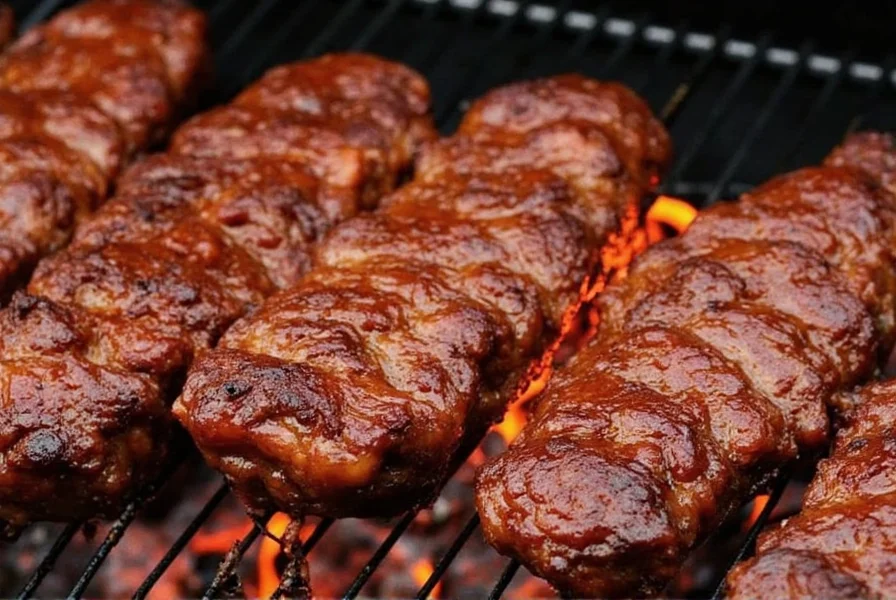









 浙公网安备
33010002000092号
浙公网安备
33010002000092号 浙B2-20120091-4
浙B2-20120091-4